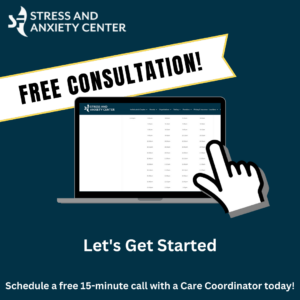Perhaps you have heard the saying, “You get out of therapy what you put into therapy.”
Although everyone experiences therapy differently, one thing is true for all: success in therapy requires effort and focus. You will ultimately achieve your goals through the work you put into therapy, but that doesn’t just happen during sessions. The work you do between therapy sessions is just as important for your progress. Here are some things you can do to continue progressing in therapy between sessions.
Complete Therapy Assignments
You may be given “homework” to do outside of therapy by your therapist. In these assignments, you may be challenged to put what you’ve learned during sessions into practice. Depending on your circumstances, your therapist may assign you breathing exercises or other self-care activities. They may also focus on practicing new skills, reframing negative beliefs, and practicing coping strategies.
Taking the time to complete tasks outside of therapy may seem daunting, but it’s well worth it. According to research, therapy is more effective when homework is assigned. What’s more? Homework assignments that are consistently completed tend to result in better therapy outcomes.
Think About Your Most Recent Session
When it feels like there’s a lot to cover in a single therapy session, it can be helpful to review what you covered with your therapist in your last session. Based on your previous discussion with your therapist, what did you learn? Were there any revelations that you would like to keep in mind and work on moving forward, such as reducing or avoiding certain thought patterns or behaviors? Would you like to ask your therapist any questions regarding something you discussed in your previous session?
As you think about and work on things outside of therapy sessions, questions may arise. Write them down so you will remember to ask them at your next appointment. By reflecting on your sessions and what you discussed with your therapist, you can identify actionable things to work on and keep your therapy goals in mind.
Try Therapeutic Journaling
Journaling is beneficial whether you are in therapy or not. By journaling, you can explore and express your thoughts and feelings, identify negative thoughts and behaviors, and more. As an outside-of-session therapy assignment, you might be asked to record your feelings and thoughts each day. Even if your therapist doesn’t assign journaling, it’s something you can do in between sessions to help you make progress toward your therapy goals. If you’re not sure how to get started with journaling, consider using these prompts.
Focus on Healthy Habits
In order to feel better mentally and physically, it is important to incorporate healthy habits into your daily life. Practicing self-care, eating well, exercising, and getting plenty of sleep are all healthy habits. Self-care involves looking after your entire being – your body, your relationships, your emotions, and your spirit. Self-care isn’t just a spa day or a glass of your favorite tea – it’s improving the things you do every day to make them healthier. To get started practicing self-care, consider these tips.
Improving your overall health also requires eating well. But what does it mean to “eat well”? Choosing nutritious foods such as fruits, vegetables, whole grains, and lean meats is a key component of a healthy diet. The benefits of eating a nutritious diet extend not only to your physical health but also to your mental health. According to studies, diets high in fruits, vegetables, unprocessed grains, and seafood reduce depression risk by 25% to 35% compared to diets high in processed and refined foods. It has also been shown that people with mental health conditions should follow a diet low in refined sugar, as a high-sugar diet has been linked to worsening symptoms.
Physical and mental health can also be improved by exercising regularly – at least 20 minutes a day. In addition to reducing anxiety and depression, exercise improves mood, self-esteem, and cognitive function. It is also important to get enough sleep. Lack of sleep can negatively affect your psychological state and mental health. A healthy diet, regular exercise, and monitoring your caffeine consumption can help you get quality sleep.
However, if you find that you are consistently having difficulty falling asleep and staying asleep, you may have a sleep disorder. The likelihood of having sleep problems and/or disorders increases if you have anxiety, depression, bipolar disorder, or attention deficit hyperactivity disorder (ADHD). Talk to your therapist if you’re having trouble getting enough restful sleep. If needed, they can refer you to a medical professional for additional treatment for sleep problems.
Be Proud of Your Progress
You can’t expect change to happen overnight. Although change may not happen as quickly as you’d like, it’s important to acknowledge and celebrate your progress in therapy. Therapy is a journey, and the more you work toward your goals between sessions, the closer you’ll get to feeling better and achieving your goals. Remember, there is no rush. Progress will happen if you put in your best effort.
If you’re ready to make progress in your mental health journey, SF Stress & Anxiety Center is here to support you. Our experienced therapists offer personalized therapy sessions and can provide guidance on how to make the most of the time between sessions. Contact us today to schedule an appointment and continue your progress towards a happier, healthier life.


